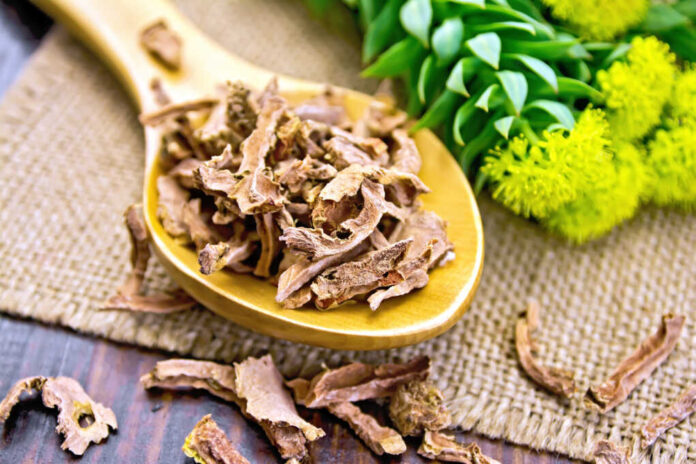
Rhodiola Rosea is a medicinal herb that is commonly used to treat fatigue, depression, and anxiety. This article covers 7 science-backed benefits of this plant for your health.
May Reduce Stress
As an adaptogen, Rhodiola is believed to help you handle stressful situations better. It has also proven effective for dealing with burnout symptoms. According to a study involving 118 people with stress-related burnout, participants experienced less stress and depression after taking 400 mg of rhodiola daily for 12 weeks.
Could Reduce Depression Symptoms
It is believed that Rhodiola could have antidepressant properties that balance the neurotransmitters in your brain and reduce depression. In one study comparing the effects of Rhodiola with the commonly prescribed antidepressant sertraline, Rhodiola produced fewer side effects and was better tolerated.
May Help With Fatigue
Rhodiola is thought to alleviate fatigue due to its adaptogenic properties. According to one study with 100 people suffering from chronic fatigue, participants experienced improvements in stress symptoms, mood, and concentration after receiving 400 mg of rhodiola daily for 8 weeks.
May Improve Exercise Performance
Rhodiola has been reported to improve sports performance by reducing physical and mental fatigue and boosting antioxidant activity, but research results are currently mixed. On the positive side, an animal study revealed that Rhodiola could boost muscle power and strengthen rat performance.
Another study showed that ingesting Rhodiola reduced reaction and total response time in physically active men. On the skeptical side, researchers reference studies showing that Rhodiola supplementation did not change oxygen uptake or muscle performance.
May Improve Brain Function
A review of 36 animal studies concluded that rhodiola could boost learning and memory function. An animal study also showed that a single Rhodiola dose increased memory and had an antidepressant effect on mice, suggesting that Rhodiola could be a useful tool in increasing cognition and counteracting mood disorders in people.
May Have Anticancer Properties
Test-tube and animal studies have revealed that rhodiola could restrict the growth of lung, bladder, gastric, and colon cancer cells. As such, researchers suggest that the herb may be useful in treating different cancer types.
However, human studies are required to determine its effectiveness in cancer treatment.
May Help Manage Diabetes
Animal research suggests that Rhodiola could improve diabetes management as its salidroside compound has been shown to protect rats from diabetes and diabetic nephropathy (kidney disease).
While these results can’t be generalized to humans, they’re a compelling reason to investigate the effects of Rhodiola on diabetic patients further.
Conclusion
Studies have shown that rhodiola could strengthen the body’s response to stressors like fatigue and depression and protect against specific conditions like depression, cancer, and diabetes.
Overall, the medicinal herb offers multiple health benefits and is considered safe with low side effect risks when taken in recommended doses.


















